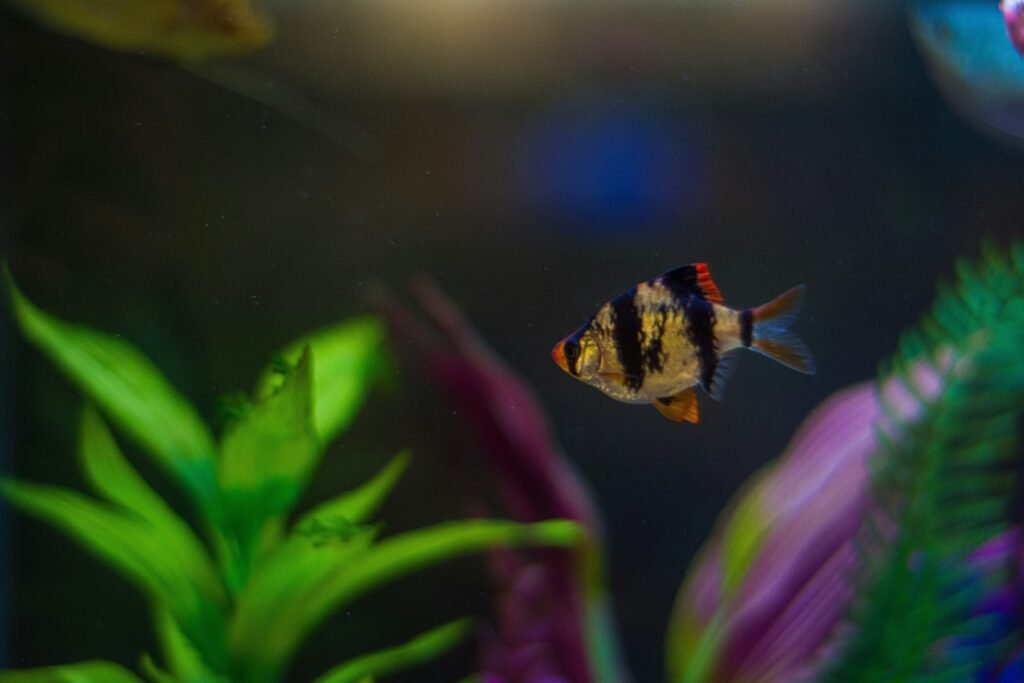
Understanding Vacation Lengths and Their Impact on Your Aquarium
When planning a vacation, it’s crucial to consider the duration of your absence and its potential impact on your freshwater aquarium. Short vacations, typically lasting less than a week, generally require minimal intervention. Most freshwater fish species can survive without food for a few days, reducing the need for complex preparations. However, ensuring that the water parameters remain stable during this period is essential. A quick check of the water quality before leaving can help identify any potential issues that might arise in your absence.
For longer vacations, extending beyond a week, more comprehensive planning is necessary to maintain the health of your freshwater aquarium. The primary concerns during extended absences include the buildup of toxins such as nitrates, which can be detrimental to fish if not managed properly. Regular water changes and monitoring are crucial to preventing these issues. A partial water change prior to leaving for your vacation is advised. Also, consider using an automatic feeder to provide a consistent supply of food, but be cautious not to overfeed, as excess food can decompose and contribute to poor water quality.
Another aspect to consider for extended vacations is the filtration system. Ensure that the filter is functioning efficiently and that it won’t become clogged in your absence leading the filter to stop the flow of water. A well-maintained filter will help to manage waste, prevent harmful nitrite buildup, and maintain a healthy environment for your fish. Additionally, arranging for a reliable friend or neighbor to check on your aquarium periodically can provide peace of mind. They can perform minor tasks such as feeding, topping off evaporated water, and observing the general condition of the tank.
Understanding the length of your vacation and its potential impact on your freshwater aquarium allows you to take the necessary steps to ensure its well-being. By preparing in advance and implementing appropriate measures, you can enjoy your time away while ensuring your aquatic friends remain healthy and your aquarium stays in optimal condition.
Essential Preparatory Steps Before You Leave
Proper preparation is paramount when planning an extended vacation, especially for those responsible for maintaining a freshwater aquarium. Ensuring the health and well-being of your aquatic inhabitants during your absence requires meticulous attention to several critical steps. Firstly, conducting a substantial water change is essential. This process involves replacing a portion of the aquarium water with fresh, conditioned water to help maintain overall water quality. Regular water changes are crucial for removing waste products and toxins, thereby providing a healthier environment for your fish.
Next, setting up an automatic fish feeder is highly recommended. This device will dispense food at predetermined intervals, ensuring your fish are fed consistently even in your absence. It is advisable to test the feeder a few days prior to your departure to confirm its functionality and to make any necessary adjustments to the feeding schedule. Regular feeding is vital for the health and longevity of your fish, preventing issues such as malnutrition or overfeeding.
Additionally, it is imperative to check all critical components of the aquarium system. Begin with the filter, which plays a significant role in biological filtration by promoting the breakdown of harmful toxins. Ensure that the filter is clean and operating efficiently. This may include replacing the sponge filter or wringing the existing sponge out to clear away buildup. The heater is another essential component, responsible for maintaining a stable water temperature. Verify that it is operating reliably prior to leaving. Lastly, inspect the air pump if applicable for your aquarium. The air pump enables additional oxygenation by circulating air through the water and may be critical for maintaining adequate oxygen levels within the aquarium depending on the stocking levels of your tank (e.g. how many fish you have).
Testing your water parameters is also a necessary step to ensure a stable and healthy environment. Parameters such as pH, ammonia, nitrite, and nitrate levels should be within acceptable ranges. Utilize a reliable water testing kit to assess these parameters and make any necessary adjustments before you leave. By following these essential preparatory steps, you can enjoy peace of mind knowing that your freshwater aquarium is well-prepared for your extended vacation.
Avoiding Common Mistakes: Why Time-Release Food Blocks Are Not Recommended
When planning for an extended vacation, ensuring your freshwater aquarium is well-prepared is crucial for the health and well-being of your fish. One common mistake many beginners make is relying on time-release dissolvable food blocks, often found in pet stores. While these blocks may appear convenient, they can lead to several significant problems that can compromise your aquarium’s environment and your fish’s health.
Firstly, time-release food blocks can degrade the water quality in your tank. As these blocks dissolve, they release food particles continuously, which can quickly dirty the water. Elevated levels of uneaten food and waste can lead to spikes in ammonia and nitrite levels, creating a toxic environment for your fish. Poor water quality can stress your fish, making them more susceptible to diseases and infections.
Moreover, time-release blocks often don’t provide a balanced diet. They tend to be composed mostly of fillers and may not offer the essential nutrients your fish need. Over time, this can lead to nutritional deficiencies and health problems for your aquatic pets. Additionally, inconsistent feeding from these blocks can cause some fish to overeat while others may not get enough food, disrupting the social dynamics within your tank.
Instead of using time-release blocks, a more reliable solution is to invest in an automatic fish feeder. These devices can be programmed to dispense precise amounts of food at regular intervals, ensuring your fish receive consistent and balanced nutrition. When setting up an automatic feeder, it’s crucial to test it a few days before your departure to ensure it functions correctly. Adjust the feeder to dispense the appropriate amount of food to avoid overfeeding, which can also lead to poor water quality.
By avoiding time-release food blocks and opting for an automatic fish feeder, you can maintain a healthier environment in your freshwater aquarium during your extended vacation. This proactive approach helps ensure your fish remain healthy and well-fed in your absence, providing peace of mind while you are away.
Ensuring Power Stability: The Role of Uninterruptable Power Supplies (UPS)
Maintaining a stable power supply is crucial for the health and wellbeing of your freshwater aquarium, particularly during an extended absence. Power outages can disrupt the functioning of essential equipment such as heaters, filters, and air pumps—elements that are vital to maintaining the optimal living conditions for your aquatic life. For tropical fish, the most critical equipment during a power outage is the heater. A temperature drop from 80 degrees to 60 degrees, for example, can cause your fish to go into shock. For longer outages or for heavily stocked aquariums, lack of oxygenated water will be the next concern. Finally, lack of filtration and building nitrite levels is a worry after a few days. An uninterruptable power supply (UPS) can serve as a reliable backup solution to mitigate these risks, ensuring that your aquarium remains stable and functional even when you’re not around.
A UPS is designed to provide emergency power to your equipment when the main power source fails. This can be especially important in regions prone to power outages or during extreme weather conditions. A UPS unit can keep your heater running, thereby maintaining the water temperature within safe ranges. It can also ensure the continuous operation of your filter, which is essential for maintaining water quality by removing waste and toxins.
When selecting a UPS for your aquarium, consider the power requirements of your equipment. It’s important to choose a UPS with sufficient capacity to support all critical components for an adequate duration. Look for a unit with a battery backup that can sustain your aquarium’s needs for several hours, allowing ample time for power to be restored or for someone to intervene. Non-critical equipment such as aquarium lights can be left off the UPS circuit to prioritize power to the most important equipment.
Additionally, pay attention to the UPS’s features. Some advanced models offer surge protection, which can safeguard your equipment from voltage spikes. Others come with remote monitoring capabilities, allowing you to keep an eye on the power status and battery health even when you’re away. Investing in a high-quality UPS can provide peace of mind, knowing that your aquarium’s environment will remain stable, minimizing any potential stress or harm to your fish.
In summary, incorporating a UPS into your aquarium setup is a prudent step in safeguarding against power disruptions. By ensuring continuous operation of essential equipment, a UPS helps maintain a stable and healthy environment for your aquatic life, allowing you to enjoy your vacation with one less worry on your mind. FishTankEssentials recommends hooking up your heater and filter to an uninterruptible power supply, even a small one, to gain you valuable time to act in the event of a power outage.
